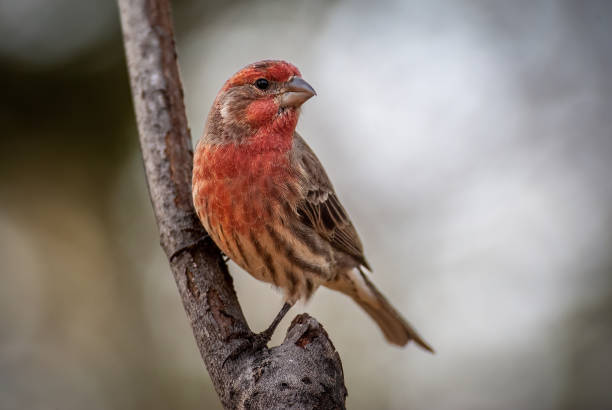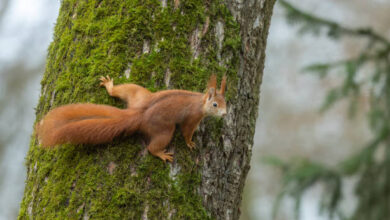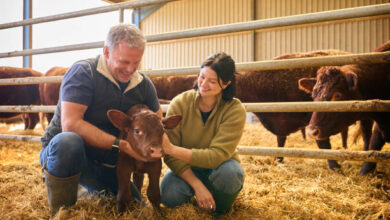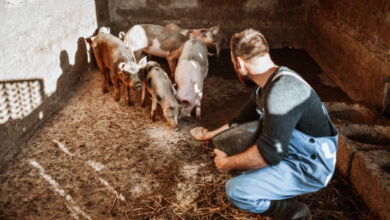
Which Animal is the Dumbest? Least Intelligent Animal
In the fascinating world of animals, intelligence varies greatly across species. While some animals exhibit remarkable problem-solving skills and social behaviors, others seem to lack cognitive abilities. This disparity often leads to the question: which animal is the dumbest? Let’s delve into the factors influencing animal intelligence and explore some of the least intelligent creatures.
Understanding Animal Intelligence
- Defining Intelligence in Animals
Animal intelligence encompasses a range of cognitive abilities, including problem-solving, social interactions, and adaptability. Measuring intelligence involves various criteria, such as the ability to learn from experiences, communicate, and navigate environments.
- Factors Influencing Animal Intelligence
Animal intelligence is a multifaceted phenomenon influenced by a variety of factors. Understanding these factors can provide insight into why some species exhibit higher cognitive abilities than others. Key influences on animal intelligence include brain size, neural density, environmental challenges, social structures, and habitat complexity. Let’s explore each of these factors in detail.
Brain Size
The size of an animal’s brain is often linked to its cognitive abilities. Generally, animals with larger brains relative to their body size tend to display more complex behaviors and problem-solving skills. This concept, known as encephalization, suggests that a higher brain-to-body ratio correlates with greater intelligence. For example, primates and cetaceans (dolphins and whales) have large brains relative to their body size, which is associated with their sophisticated social structures and advanced communication skills.
Neural Density
While brain size is important, neural density—the number of neurons and their interconnections—plays a crucial role in determining intelligence. Animals with densely packed neurons in certain brain regions, particularly the cerebral cortex, often exhibit higher cognitive functions. Birds, such as crows and parrots, have relatively small brains but high neural density, enabling them to perform complex tasks, use tools, and exhibit problem-solving abilities.
Environmental Influences
The environment in which an animal lives can significantly impact its cognitive development. Animals in challenging and variable environments must adapt to survive, leading to the evolution of enhanced cognitive abilities. For example, octopuses, living in dynamic marine environments, have developed remarkable problem-solving skills and the ability to use tools. Conversely, animals in stable and unchanging environments may not need such advanced cognitive abilities, focusing instead on other survival strategies.
Social Structures
Social interaction is a major driver of intelligence in the animal kingdom. Species that live in complex social groups, such as primates, elephants, and dolphins, tend to develop sophisticated communication systems, social hierarchies, and cooperative behaviors. These social dynamics require high levels of cognitive function to navigate relationships, coordinate group activities, and ensure social cohesion.
Habitat Complexity
The complexity of an animal’s habitat can also influence its intelligence. Animals that inhabit environments with diverse and plentiful resources often need advanced foraging strategies, spatial memory, and navigational skills. For instance, squirrels and certain bird species, which store food in various locations, have excellent spatial memory to retrieve their caches. In contrast, animals in simpler habitats may not develop such complex cognitive abilities, as their survival strategies do not require them.
Additional Considerations
Other factors that influence animal intelligence include genetic predispositions, evolutionary history, and developmental processes. Genetic factors can predispose certain species to develop higher cognitive abilities. Evolutionary pressures over millions of years shape the intelligence of species, favoring traits that enhance survival and reproduction. Additionally, an individual animal’s development, including its learning experiences and interactions with its environment, can significantly impact its cognitive abilities.
Notoriously “Dumb” Animals
- The Myth of the Dodo Bird
The dodo bird, often cited as the quintessential “dumb” animal, suffered extinction due to human activities and introduced predators. Contrary to popular belief, the dodo’s perceived lack of intelligence was more about its evolutionary adaptations to an isolated environment without significant threats.
- The Slow-Witted Turkey
Turkeys are often deemed unintelligent due to behaviors like staring at the sky during rain, which can lead to drowning. However, this behavior is linked to a genetic condition rather than sheer stupidity.
- The Simple Sea Cucumber
Sea cucumbers lack a central nervous system, making them appear unintelligent. Their basic survival mechanisms, such as expelling internal organs to escape predators, highlight a simple but effective strategy rather than cognitive prowess.
- The Lethargic Koala
Koalas have a reputation for limited intelligence, largely due to their specialized diet of eucalyptus leaves, which provide low nutritional value. Their sedentary lifestyle and small brain size relative to body mass contribute to this perception.
- The Infamous Ostrich
Ostriches are often mocked for supposedly burying their heads in the sand, a myth stemming from their defensive behaviors. In reality, ostriches lay their heads on the ground to avoid detection by predators, showcasing an instinctual rather than intellectual response.
The Science Behind Animal Cognitive Abilities
- Brain Size vs. Body Size
Intelligence in animals is often correlated with brain size relative to body size. Animals with larger brains compared to their body size, such as primates, typically exhibit higher cognitive abilities.
- Neural Density and Function
The number of neurons and their connectivity significantly impact intelligence. Species with higher neural density in certain brain regions tend to perform better in cognitive tasks.
You May Love To Read
Do Fish Pee? What You Need To Know
Misconceptions and Human Perceptions
- Anthropomorphism and Its Impact
Humans frequently attribute their traits to animals, a practice known as anthropomorphism. This can lead to misconceptions about animal intelligence, as behaviors that seem “dumb” may actually be well-suited to the animal’s ecological niche.
- Evolutionary Adaptations
Behaviors perceived as unintelligent might be evolutionary adaptations for specific environments. For example, the koala’s low-energy lifestyle is perfectly suited to its nutrient-poor diet, demonstrating an adaptation rather than a lack of intelligence.
Measuring Animal Intelligence Accurately
- Cognitive Tests and Studies
Various tests, such as maze navigation and problem-solving tasks, are used to measure animal intelligence. However, these tests often have limitations and may not capture the full range of an animal’s cognitive abilities.
- The Importance of Context
Evaluating intelligence requires considering the context in which an animal lives. What might seem like unintelligent behavior in one environment could be highly adaptive in another.
Conclusion
Labeling an animal as the “dumbest” oversimplifies the complex and diverse ways in which different species have adapted to their environments. Each animal’s behavior and cognitive abilities are shaped by unique evolutionary pressures. Understanding these adaptations helps us appreciate the incredible diversity of life on Earth. Have you encountered surprising facts about animal intelligence? Share your thoughts and experiences in the comments below!




